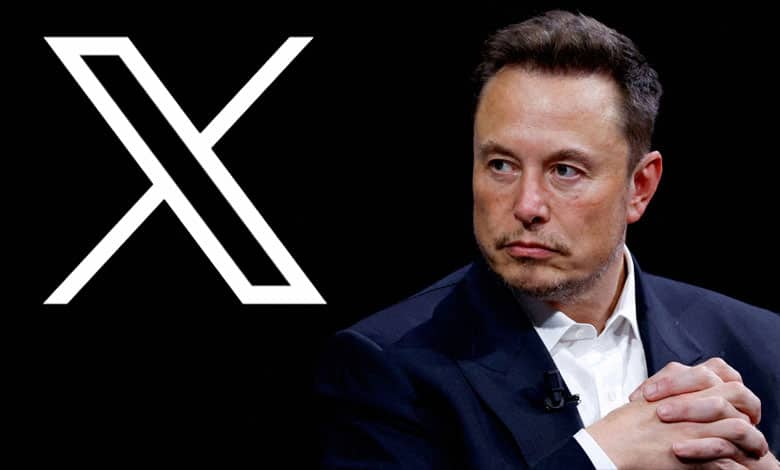The Great X-odus: Why Users Are Fleeing Elon Musk’s X (Formerly Twitter) in Record Numbers After 2024 Election
The exodus is not limited to everyday users. Prominent figures from the worlds of entertainment, journalism, and business have been among the first to exit the platform.

Discover why users are abandoning Elon Musk’s X (formerly Twitter) in record numbers following the 2024 U.S. election. From political polarization to privacy concerns, explore the factors behind the Great X-odus.
In the wake of the 2024 U.S. presidential election, Elon Musk’s social media platform, X (formerly Twitter), is facing a major user exodus. According to recent reports, over 115,000 users in the U.S. deactivated their X accounts on November 7, the day after Election Day, marking the platform’s largest drop in users since Musk’s $44 billion acquisition of the platform in 2022.
Table of Contents
Who Is Leaving X?
The exodus is not limited to everyday users. Prominent figures from the worlds of entertainment, journalism, and business have been among the first to exit the platform. Celebrities such as Barbra Streisand, Jamie Lee Curtis, John Cusack, Ben Stiller, and Mark Hamill have all migrated to rival platform BlueSky, citing dissatisfaction with the growing toxicity and political polarization on X.
Journalists, a key demographic for the platform, are also saying goodbye. Former CNN anchor Don Lemon publicly announced his departure, stating that he no longer believes X serves as a space for “honest debate and discussion.”
Also Read: 13 Hard-Hitting SEO Truths You Need to Know in 2025
In addition, major news organizations are following suit. The Guardian, one of the UK’s leading newspapers, confirmed that it would no longer post content on X, citing the rise in “disturbing content” and disinformation. La Vanguardia, a prominent Spanish newspaper, also suspended its use of the platform due to similar concerns. Other businesses, including major retailers like Best Buy and Target, have paused their advertising campaigns on X in response to the platform’s increasing controversies.
Why Are Users Fleeing X?
While X has seen several user drops in the past due to Musk’s controversial changes to the platform—including the rebranding of Twitter to X and the overhaul of the “blue check” verification system—this exodus is largely driven by the increasing politicization of the platform. Musk’s public endorsement of Donald Trump’s candidacy and his potential future role in Trump’s administration have raised concerns among users, particularly those who lean left politically. Many users have grown disillusioned with X’s shifting culture and are seeking a platform that feels more neutral.
A study by Queensland University of Technology (QUT) found that Musk’s account, along with accounts from conservative figures such as Tucker Carlson and Ben Shapiro, experienced significant engagement boosts starting in July 2024. This shift in algorithmic favor has only heightened perceptions that X is becoming a platform more aligned with conservative viewpoints, further alienating left-leaning users.
Changes to X’s Terms of Service and Privacy Concerns
Another key factor driving users off X is the recent update to the platform’s terms of service. As of November 15, 2024, users must now agree to allow their posts to be used to train Grok, an AI chatbot developed by Musk’s xAI. This change has raised significant privacy concerns, as users previously had the option to opt out of having their posts used for AI training.
Moreover, X’s recent update to the block feature has sparked frustration among users. Previously, blocking someone on the platform would prevent them from viewing your public and private posts. Now, blocked users can still view public posts, although they are unable to interact with the user. This has led many to question the platform’s commitment to user privacy and control.
Is This the End of X?
Despite the growing exodus and the platform’s declining user engagement, X is far from disappearing. A Pew Research survey found that 59% of U.S. users still turn to X for news, a significant user base that could keep the platform relevant.
Moreover, advertisers—who had pulled back from X due to Musk’s acquisition and the rise of controversial content—are slowly returning. Companies like IBM, Disney, and Comcast have resumed their advertising campaigns on X following Trump’s election victory, possibly seeking to gain favor with Musk, who now has close ties with the incoming president.
While X’s future remains uncertain, it’s clear that the platform is entering a new phase. With Musk’s strong political affiliations and his potential influence over the White House, X could become even more intertwined with the political landscape, raising questions about its role as a neutral platform for global discourse.
As the drama continues to unfold, the fate of X remains in the balance. Will it evolve into a key communication tool for the Trump administration, or will its growing toxicity and user defection be too much to overcome? Only time will tell.
Conclusion
The exodus from X reflects growing dissatisfaction with the platform’s direction under Elon Musk’s leadership. As users flee to rival platforms like BlueSky and news organizations pull back, it remains to be seen if X can maintain its relevance in an increasingly polarized social media landscape. For now, it’s clear that the platform is facing a major crossroads—one that could determine its future in the years to come.
For more updates on social media trends and platform shifts, follow us for real-time news on the changing digital landscape.
